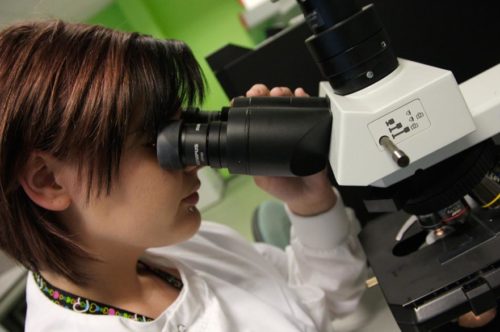Our extended degree in biomedical science explores human health and disease. We focus on many areas of medical and biosciences, examining the mechanisms of disease, diagnostic pathways and therapeutic intervention. Our lecturers are experienced academics in areas including cell biology, cancer biology, microbiology and haematology.
This extended biomedical science course begins with a foundation year to prepare you for degree-level learning. After this, you’ll progress to our three-year degree, which includes practical modules, real-life clinical case studies and a research project. The course is accredited by the Institute of Biomedical Science, a leading professional body in the field.
We provide exciting work experience opportunities at a range of organisations, from multinational firms, government agencies and the NHS to smaller companies engaged in research, analytical services and manufacturing. You’ll graduate ready for roles in the public and private healthcare sectors, from the NHS, Medical Research Council and Health and Safety Executive to forensic laboratories and pharmaceutical companies. Former students have gone on to work for GlaxoSmithKline (GSK), Dyson, Eon, PS Analytical, E-liquids and NHS hospitals.
What you should know about this course
Year 0
Students are required to study the following compulsory modules.
- Introduction to Biology (30 credits)
- Introduction to Chemistry (30 credits)
- Introductory Practical Science (30 credits)
- Foundation Mathematics (15 credits)
- Learning Skills for Science (15 credits)
Year 1
Students are required to study the following compulsory modules.
- Biochemistry 1 (15 credits)
- Biochemistry 2 (15 credits)
- Fundamentals of Biology and Physiology (30 credits)
- Basic Chemistry for Life Science (15 credits)
- Practical and Academic Skills (30 credits)
- Introduction to Medical Science (15 credits)
Year 2
Students are required to study the following compulsory modules.
- Cellular and Molecular Pathology (Level 5) (15 credits)
- Physiological Systems and Regulation (15 credits)
- Metabolism and Disease (15 credits)
- Bioanalytical Techniques (15 credits)
- Cell Biology and Immunity (15 credits)
- Genetics (15 credits)
- Microbiology and the Environment (15 credits)
- Research and Professional Skills in Life Science (15 credits)
Year 3
Students are required to study the following compulsory modules.
- Project (Life Sciences) (30 credits)
- Advanced and Clinical Immunology (15 credits)
- Medical Microbiology (15 credits)
- Medical Biochemistry (15 credits)
- Haematology and Blood Transfusion (15 credits)
Students are required to choose 15 credits from this list of options.
- Pathophysiology of Disease (15 credits)
- Cancer Biology and Therapeutics (15 credits)
Students are required to choose 15 credits from this list of options.
- Science Internship Course (15 credits)
- Personal and Professional Development (15 credits)
Zobacz więcej na stronie uniwersytetu >>
Wiza studencka do Wielkiej Brytanii
Aby studiować w Wielkiej Brytanii potrzebujesz wizy studenckiej. Aby złożyć wniosek o taką wizę studencką musisz zdjać certyfikat językowy na poziomie B2.
Uważaj! Do celów wizowych musisz wybrać wyłącznie egzamin w wesji Secure English Language Test (SELT) UKVI .
Co to jest test SELT UK VI registration? Przeczytaj więcej o testach SELT UKVI >>




















